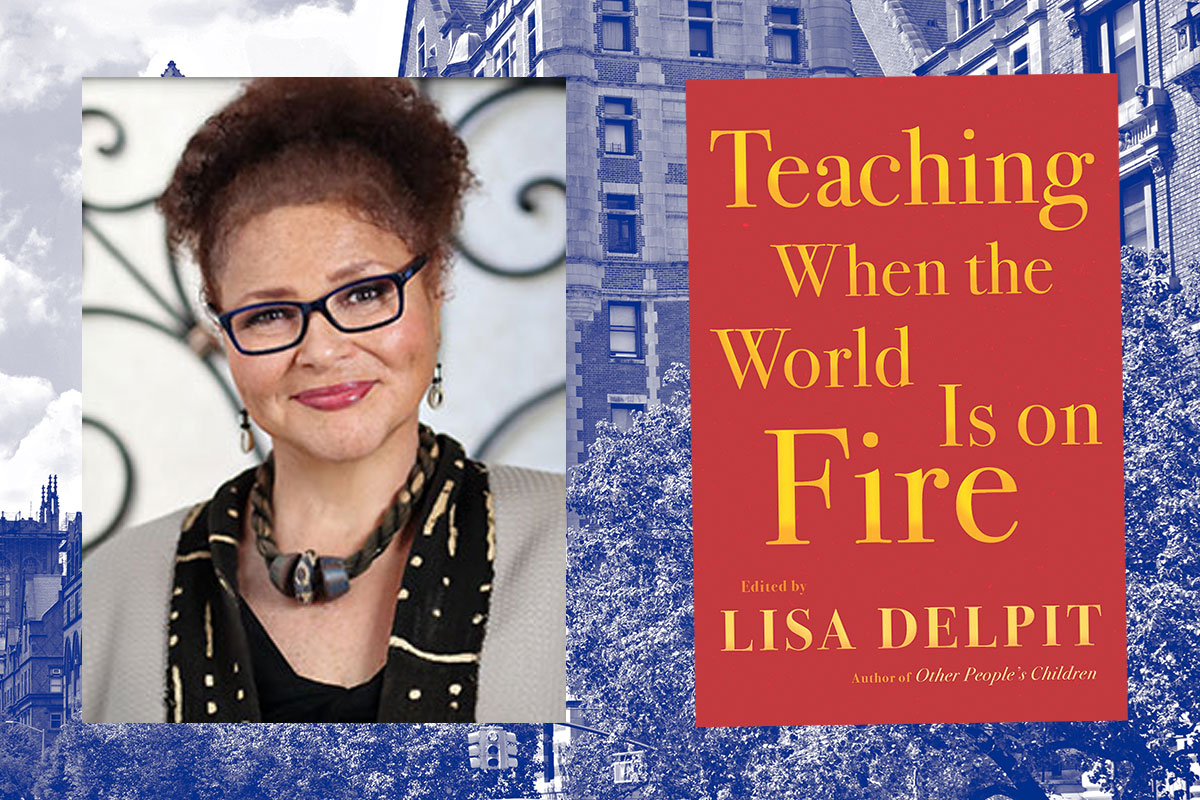Educators must reframe the narratives that thwart the learning potential of under-represented students, award-winning author and MacArthur “genius grant” recipient Lisa Delpit told participants in her July 13th keynote address to Teachers College’s 2020 Reimagining Education: Teaching, Learning and Leading for a Racially Just Society Summer Institute (RESI). This year’s Institute — the fifth iteration of the annual event — is the first to be held entirely online.
“We have to inundate the conscious mind with ideas to reprogram the unconscious mind. We have to give ourselves and our students new stories that uncover the brilliance they exhibited as babies,” Delpit said in addressed titled “The Stories We Tell and the Fire This Time,” livestreamed from Baton Rouge, where she is the Felton G. Clark Distinguished Professor of Education at Southern University and A&M College. “We have to give the students the psychological space to utilize their full brain power to engage academic content. And we have to replace the stereotypes that caused their brains to shut down or have so traumatized them emotionally that they have nothing left for academics.”
We have to inundate the conscious mind with ideas to reprogram the unconscious mind. We have to give ourselves and our students new stories that uncover the brilliance they exhibited as babies.
Delpit challenged educators and community leaders to support young people of color as they transcend narratives defined by discrimination in housing, employment and systemic abuses by law enforcement.
“Since most of the stereotypes are connected to the stories we have breathed in all our lives, the new stories have to replace the old ones,” she said.
Delpit is the author of the landmark 1995 book Other People's Children: Cultural Conflict in the Classroom, in which she calls on teachers to serve as “cultural transmitters” in the classroom, where prejudice, stereotypes, and cultural assumptions often breed ineffective education. Her other books include Multiplication is for White People: Raising Expectations for Other People’s Children (2013); and, most recently, Teaching When the World is On Fire (2019) and The Skin That We Speak: Thoughts on Language and Culture in the Classroom (2008).
In addition to the MacArthur Award, Delpit received the American Educational Studies Association Critics’ Choice Award and Choice Magazine’s Outstanding Academic Book Award for Other People’s Children.
The RESI keynote was moderated by Jamila Lyiscott (Ph.D., ’15), an Assistant Professor of Social Justice Education at the University of Massachusetts Amherst and Senior Research Fellow of TC’s Institute for Urban and Minority Education (IUME).
Lyiscott praised Delpit for “transforming everyone in this space,” calling The Skin That We Speak “a game changer for everything about how I conceptualize my own identity and how I affirm being a Black woman in the academy.”
The students have to feel they belong to the school club. And we have to help the teachers show students they are welcome, celebrated and a vital component of every school day in every school classroom.
Delpit’s current research focuses on “positive self-identification” strategies designed to connect student learning to family experiences, communities, cultural and racial heritages of “people who look like them.”
Delpit believes the framing of culturally relevant narratives can and perhaps should begin with parents, grandparents, friends and relatives sharing memories of the events that shaped their lives.
“There are ways to connect outside the classroom to history,” said Delpit. “And once you start putting kids at the center and move out from there rather than take a curriculum and move it down to the kids there are lots of ways to make those kinds of connections.”
Delpit is in the process of developing a model to show teachers how to assimilate the narratives bring from home into classroom instruction.
“We have to create better relationships between students and teachers,” she said. “The students have to feel they belong to the school club. And we have to help the teachers show students they are welcome, celebrated and a vital component of every school day in every school classroom.”
— Steve Giegerich
